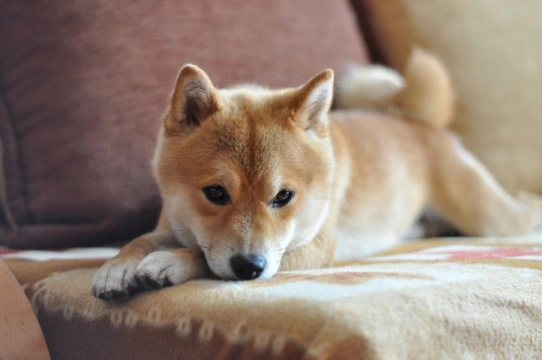
How to tell when to interact with a puppy, and when to leave it be
When you first bring home your new puppy, who will usually be a cute, cuddly waggy-tailed little sweetheart, it can be really difficult to get the balance right between giving your puppy enough attention, socialisation and company, and allowing them to have their own space and time to take stock of the situation.
It is obviously important to make your puppy feel welcome and loved, and to begin bonding with them and socialising them with the family, but also important to ensure that your puppy learns to get used to being on their own, and has time to relax and be by themselves. In this article, we will look at when and why your puppy should receive attention, and when they should be left alone. Read on to learn more.
Newborns
If you are lucky enough to have a brand new litter of puppies from your own dam, it falls to you to be the person to begin their socialisation and getting them used to people. These first early experiences of people should begin before the pups even open their eyes, so by the time they are able to see and navigate around, they have already built up a positive association with people and being handled.
If the dam of the puppies is anxious or protective of them, do not push her or stress her to allow you to handle the puppies, restricting handling to once or twice a day to weigh the puppies and get them used to being held. If the dam is fine with your presence, take some time each day to stroke, hold and play with the puppies too, and potentially give the dam a break! When the puppies open their eyes at around two weeks old, you should begin to handle them several times a day and begin their socialisation in earnest.
Showing affection
Dogs need love, and this can be given via affection, which your puppy should experience as soon as they are old enough to understand it. Tail wagging, wrestling, cuddling up together and playing are all ways that the puppies begin to socialise with each other and with the dam, and you should also ensure that your puppy begins to learn when young how to give and receive affection from people. Do not withhold affection from puppies as part of training or as a punishment; your puppy needs to feel that they are a part of the family, and that the love they receive is not conditional. However, do not reward bad behaviour such as nipping, biting or growling with affection; wait until your puppy calms down and checks their behaviour first.
Affection and positive reinforcement
Dogs love positive attention of all types, from a kind word to a treat to being petted. However your puppy is behaving or whatever they are doing when you give them attention will reinforce that behaviour to them, teaching them that it gains them a reward.
Puppies go through a very steep learning curve during their first six months of life, and will be learning all the time during this period by means of the feedback that they receive from you for their behaviours.
So while it is definitely cute and funny if your puppy climbs all over you or jumps up, begin to ignore this behaviour or correct it as soon as your puppy is old enough to get mobile on their own, so that you do not inadvertently provide positive feedback for something that will become a problem when they are older.
Do not enable fear and anxiety
Puppies, as part of their learning process, will go through a large range of “firsts” in terms of their experiences, and some of these may cause anxiety or fear when they first receive the stimulus. How you deal with these firsts will begin to lay out the pattern for the rest of your puppy’s life, and so it is vital that you handle them carefully!
For instance, if your little puppy shows fear of something that is not actually a risk to them- such as loud noises (fireworks or thunder) it is instinctive to try and reassure your puppy, and pander to their fear in order to try to make them feel better.
However, this type of reinforcement simply teaches your pup that their fear is appropriate and well-placed, and reinforces their concept of the perceived threat. When your puppy shows irrational fear, do not enable or reinforce fear in this way- keep doing what you are doing, speak to your puppy in your normal voice, and carry on demonstrating to them that for you, everything going on is normal.
Crate training and sleeping through the night
Getting your puppy both used to a crate and used to sleeping through the night can sometimes be as challenging as having a human baby, and this is often one of the areas most likely to confuse dog owners in terms of when to act and when to leave well alone!
If your pup cries all night or all the time they are in their crate, you are likely trying to move things along too fast, and will need to take a step back in terms of your expectations. However, if your pup cries for a brief period when they are first left alone, leave them time to settle down, in order to avoid reinforcing the message that inappropriate crying garners affection, or that being alone is bad.



